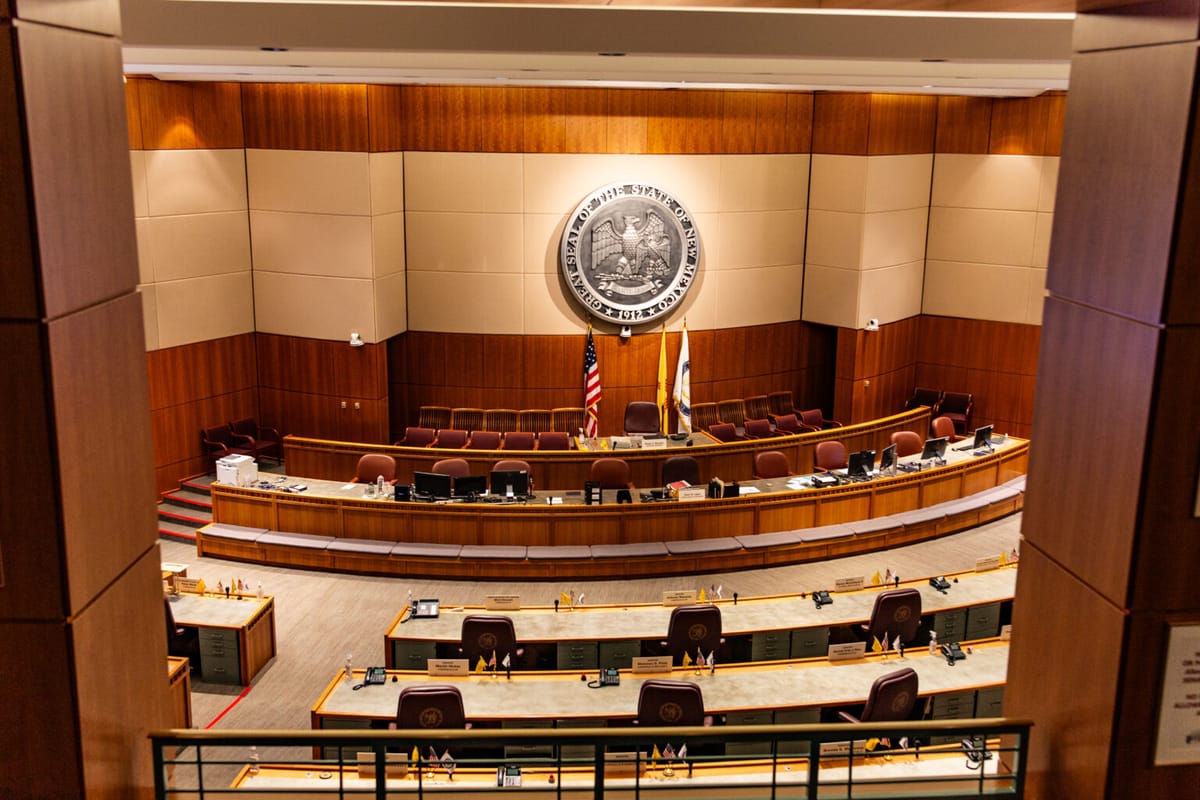New Mexico Senate passes social work licensing compact, organ donor education and Mt. Taylor memorial
Senate also advances bills on transit, state employee benefits and insurance practices amid statewide workforce shortages and rural health care gaps

Organ Mountain News report
SANTA FE - The New Mexico Senate advanced a series of bills and memorials Tuesday addressing workforce shortages in social services, expanding organ donor education and reaffirming the cultural significance of Mt. Taylor — all while highlighting some of the persistent challenges facing communities across the state.
Social work licensing compact aims to ease workforce shortage
The Senate voted 36-0 to approve Senate Bill 105, which would allow licensed social workers from other states to practice in New Mexico by joining the Social Work Licensure Interstate Compact.
New Mexico has faced a chronic shortage of licensed social workers, especially in rural and underserved areas, where residents often lack access to mental health and family support services. According to state workforce data, agencies across New Mexico have struggled to recruit and retain qualified social workers, contributing to gaps in child welfare, behavioral health and other community services.
“As a longstanding advocate to improve child wellbeing and make sure our social services are meeting our communities’ needs, it’s clear that our communities and agencies are short-staffed and have been for years,” said bill sponsor Sen. Linda Trujillo, D-Santa Fe. “Not only does this legislation address serious workforce shortages and attract quality social workers to New Mexico but it makes clear that culturally competent care is our expectation from the start.”
Co-sponsor Sen. Antoinette Sedillo Lopez, D-Albuquerque, said the bill would also benefit military families relocating to New Mexico, where bases and installations often serve as hubs for social services and health care.
“Whether for a quick stopover or a long-term change of station, New Mexico serves as home to scores of military service members and their families,” Sedillo Lopez said. “This will help make their transition to the Land of Enchantment just that much smoother and I am proud to share my support.”
Organ donor registration education materials
The Senate also voted 37-0 to approve Senate Bill 118, which directs the Motor Vehicle Division to create and distribute updated educational materials about organ donation to various state agencies.
New Mexico, like many states, continues to face a critical shortage of organs available for transplantation, leaving many residents waiting for life-saving procedures. In rural areas, where specialized health care access is limited, organ transplant recipients often must travel to other states to receive treatment.
“There is a dire shortage of organs available for transplantation to seriously ill patients,” said Sen. Elizabeth Stefanics, D-Cerrillos, who sponsored the bill. “This bill makes sure our state agencies have access to the latest research and data and that we can share that information with New Mexicans who want to know more about the process of registering as an organ donor.”
In 2024, donations from 90 organ donors in New Mexico resulted in 207 life-saving organ transplants.
Senate memorial on Mt. Taylor’s cultural significance
By a vote of 21-14, the Senate passed Senate Memorial 14, which reaffirms the state’s commitment to protecting the cultural, ecological and spiritual significance of Mt. Taylor and opposes uranium mining projects in the area.
Mt. Taylor, located in Cibola County, is considered sacred by many Indigenous communities including the Pueblos of Acoma, Laguna and Zuni, the Hopi Tribe in Arizona and the Navajo Nation. The mountain was designated a Traditional Cultural Property in 2009 following advocacy from tribal leaders.
The memorial comes as many Native leaders continue to voice concerns about the long-term environmental and health impacts of uranium mining in western New Mexico, where abandoned mine sites have left behind contamination affecting air, water and soil.
“Mt. Taylor, which is known to Indigenous people across the Southwest by several traditional names — Tsibina in my language, Laguna, and Kaweshtima in Acoma, where I live — is a sacred place that has been central to the cultural, spiritual and historical integrity of many tribes for countless generations,” said Sen. Angel Charley, D-Acoma, the memorial’s sponsor.
“I truly believe that what happens to the land happens to the people,” Charley said. “When we take from the land, when we desecrate the land, when we harm the land, so too will we hurt the people that are from that land. We’ve seen the consequences of uranium mining in New Mexico and we know how this story goes.”
Gov. Charles Riley of the Pueblo of Acoma also spoke in support of the memorial.
“For generations, our people have journeyed to Kaweshtima, Mt. Taylor, to conduct ceremonies, harvest medicinal plants and offer prayers,” Riley said. “The mountain is not just land — it is a living sacred entity that must be protected. Every blast from these mines would be an assault on our traditions. We are grateful to the sponsors of these memorials for their leadership in ensuring that this sacred site remains untouched for future generations.”
Other bills and memorials advanced
The Senate also approved several additional measures:
- Senate Bill 159, allowing independent theaters to obtain beer and wine licenses, passed 37-0
- Senate Bill 213, requiring drivers to yield to transit buses, passed 38-0
- Senate Bill 376, addressing state employee health benefit contributions, passed 36-2
- Senate Bill 221, expanding definitions of unfair insurance claims practices, passed 37-0
- Senate Memorial 2, creating a wildfire study group, passed 36-0
- Senate Memorial 19, encouraging New Mexico meat, cheese and produce in schools, passed 43-0
Several of the bills relate to broader issues affecting New Mexicans, including the rising cost of health care for state employees and the need for affordable local food in school meals — challenges that have gained attention as New Mexico faces high rates of poverty and food insecurity.
For more information on these bills, visit the New Mexico Legislature’s website at https://www.nmlegis.gov.
